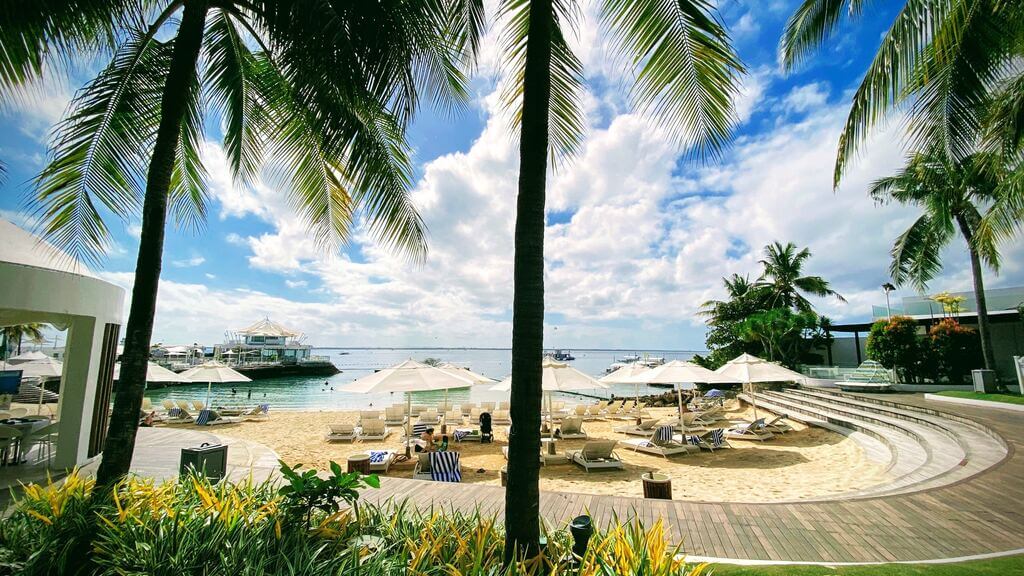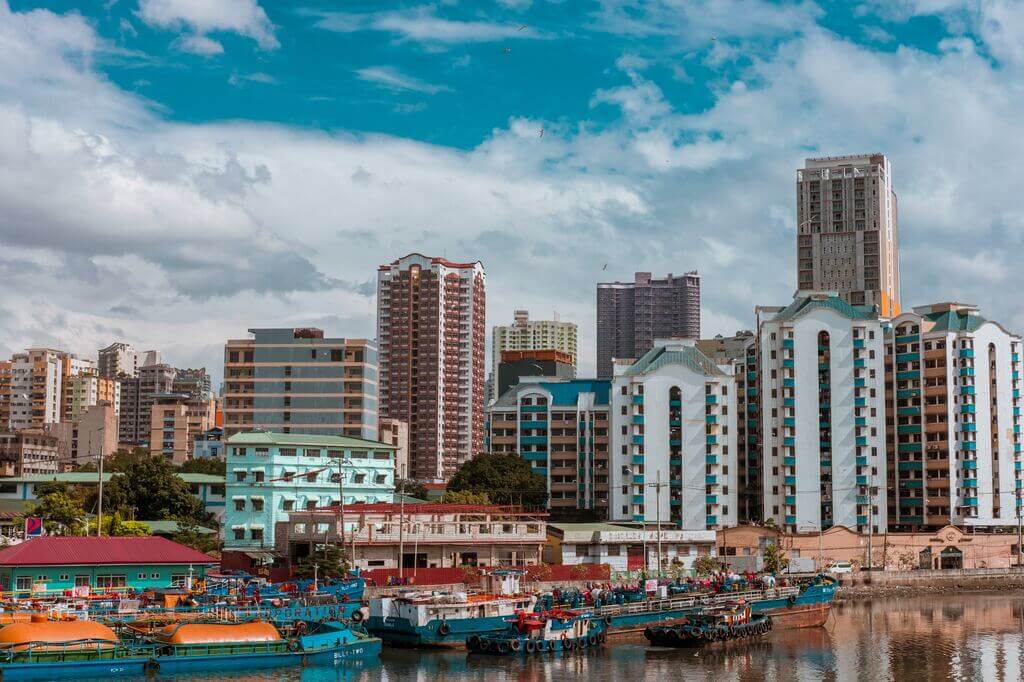Benefits of having a house rental business in the Philippines
Investing in a rental business in the Philippines can bring several benefits. If you choose to invest in a property rental business, here are some of the advantages:
- Stable income: The rental business offers a steady stream of passive income that can add to your primary income.
- Property appreciation: A benefit of the rental business is the potential increase in property value in locations experiencing growth, leading to sizable gains over time.
- Tax privileges: Property owners engaged in a rental business can enjoy tax advantages. These include deductions for expenses tied to the property and depreciation.
- Ownership control: A rental business in the Philippines allows property owners to exercise control, like choosing tenants and setting rental rates.
8 things to know about rental properties in the Philippines
Running a property rental business entails a comprehensive understanding of various aspects. Here’s what you need to know about the rental business in the Philippines:
- Rental yield: The rental yield, or annual return on investment, for property rentals in the Philippines, is typically around 6-8%. However, this could fluctuate based on the property’s location and type.
- Rental market: Urban areas like Metro Manila and Cebu City exhibit high demand for rental properties, making them hotspots for the rental business in the Philippines. The rental market is also blossoming near universities and colleges due to the growing student population’s accommodation needs.
- Mayor’s permit: The Mayor’s Permit is necessary for house rental businesses. It certifies that the company has conformed to all the prerequisites, comprising taxes, licenses, and business permits for house rental in the Philippines.
- Lease agreements: Typically, lease agreements in the property rental business run for 12 months, with security deposits equating to around two months’ rent.
- Rental control: Certain regions of the Philippines enforce rent control legislation, restricting the annual increment landlords can impose on rent.
- Property taxes: Compared to other countries, the property taxes in the Philippines are notably high. As part of the BIR requirements for house rental in the Philippines, landlords must pay a percentage of their rental income as tax.
- Property management: Hiring property management companies can be a practical solution, especially when no business permit for an apartment rental in the Philippines is available. These corporations help landlords with screening tenants, collecting rent, and maintaining property.
- Tenant screening: Landlords should thoroughly evaluate potential tenants’ rental history and financial stability, verifying credit scores and employment history.
Starting a house rental investment in 9 steps
Starting a property rental business in the Philippines can be profitable with the right approach. Here’s a guide to help you get started:
Step 1: Initial capital
Though you may experience a capital shortage when starting your rental business in the Philippines, some initial investment is necessary. In situations where you have the land but need to construct the property, you can resort to various capital generation sources such as:
- Loans from friends or relatives
- Personal savings
- Bank loans
However, bear in mind that bank loans may require time-consuming documentation.
Step 2: Property selection
Carefully choosing the land for the rental property is essential. Consider these tips when buying a plot:
- Make sure to buy a property only on legitimate sites.
- Choose a location with convenient transportation access.
- Opt for locations near schools, businesses, and points of interest.
- Ensure the property is purchased from a legitimate owner.
- Avoid lands located on major fault lines.
Step 3: Property design
The amount of capital you have can dictate the size and design of your rental property. Before finalizing the purchase, ensure the property has a clean title through a thorough search.
Step 4: Government licenses and business permit
After securing the capital and property, ensure you possess all necessary government clearances and permits from respective agencies. This action prevents potential inconveniences, especially when running a business with no business permit for an apartment rental in the Philippines.
Step 5: Business registration
Once construction concludes:
- Register the business at the Department of Trade and Industry (DTI) if you’re the sole proprietor.
- If you plan to establish a corporation, register it at the Securities and Exchange Commission (SEC).
Step 6: Insurance protection
Securing insurance for your property is a crucial step. It may incur additional costs, but it ensures the safety of your investment. Insurance procurement should be through a well-established insurer with a robust track record.
Step 7: Lease agreement
Drafting a comprehensive lease agreement before renting out your property serves to protect all parties involved. It’s advised to leverage the services of a professional lawyer to prepare a suitable contract.
Step 8: Tenant screening
To mitigate risks in the rental business in the Philippines, choose tenants capable of paying rent consistently and causing minimal property damage.
Step 9: Property maintenance
Regular property maintenance is key to ensuring its longevity and maximizing returns:
- Conduct routine property inspections.
- Don’t disregard tenant complaints.
- Carry out essential repairs promptly.
Apart from these elements, knowing the BIR requirements for house rental in the Philippines is also vital for your rental business’s successful operation.

5 tips for turning homes into a rental business in the Philippines
Real estate purchases can turn into profitable rental businesses. Turning your home into a rental business in the Philippines can help cover your property’s amortization and maintenance costs. Here are some tips for starting your rental business:
- Understand the Homeowners’ Association’s Rules: HOAs are non-stock, non-profit organizations mandated by the Housing and Land Use Regulatory Board (HLURB). It’s beneficial to become a Homeowners Association (HOA) member, especially for condo and apartment owners, as it grants access to all community services and facilities. Membership does require contributions such as fees, special assessments, and dues.
- Ready the necessary documents: After understanding the HOA policies, prepare your landlord documents. These should include a lease agreement – a contract outlining the rental duration, monthly rent payments, security deposit, and other terms. Your rental agreement should also state the grounds for eviction and the process for contract renewal, ensuring both the landlord’s and tenant’s rights are protected as per the house rental law in the Philippines.
- Set an appropriate rental price: Compare the prices of similar properties around your location and consider their features. Consulting various online rental or property listing websites can also guide you in determining a competitive rent price.
- Consider minor home upgrades: Attractive and comfortable properties draw in more prospective tenants. If your home needs fixes, such as repairing broken faucets or shabby ceilings, attend to those first. If your property is new, you can enhance its appeal by adding minor upgrades, such as stylish home accessories and décors. Remember, any home modification is optional and depends on your budget.
- Prepare for associated costs as a rental property: Running a rental business in the Philippines involves costs beyond your HOA dues. Be ready to account for tax registration fees, property marketing expenses, and costs for home upgrades. Remember, the repair and maintenance costs to sustain your property’s livability over time. Consider these costs when setting your rental prices, or you may find it hard to attract new tenants.
Top rental business ideas to consider in the Philippines
Before starting a rental business in the Philippines, it’s important to understand the current rental market and the opportunities. A growing need for affordable and convenient housing has increased demand for rental units, such as apartments, condos, and single-family homes. As a potential business owner in this market, it’s essential to identify which property types are in high demand and determine which areas offer the most promising growth potential.
1. Property rental business in the Philippines
Starting a property rental business can encompass various properties, including houses, townhouses, and commercial spaces. The key to success in this venture is identifying the right properties based on location and current market trends.
Researching and analyzing trends in varying property segments can give you valuable insights to make informed decisions. Familiarize yourself with property management. Build a strong team of professionals, including a real estate agent, property manager, and legal advisor, to assist with the day-to-day operations of the business.
2. Apartment business in the Philippines
Apartments are among the most popular rental properties in the Philippines, serving as a reliable investment. Establishing an apartment business in the Philippines requires research, determination, and proper planning.
Begin by identifying suitable locations based on factors like accessibility to public transport, proximity to shopping centers, schools, and colleges, and safety. Conduct market research to understand the ongoing rental rates in the area. This information can help you set competitive prices for your apartment rentals and attract a broader renter pool.
3. Condo rental business in the Philippines
The demand for condominiums has significantly increased as urban professionals and young families opt for more compact living spaces with modern amenities and conveniences. Consequently, starting a condo rental business in the Philippines can be another rewarding investment.
To begin, you need to select a dependable and desirable condominium development in a sought-after area. Ensure that the building has amenities such as a swimming pool, gym, and reliable security. Additionally, consider establishing a relationship with a dependable property management company to handle the cleaning, maintenance, and repairs of the condo units.
Buy property in the Philippines with Own Property Abroad
Do you want to buy property in the Philippines? Knowing the regulations and property laws in the Philippines can be confusing, especially for foreigners. Own Property Abroad can assist you and ensure a seamless and hassle-free property journey. Thanks to our knowledge and experience in the local market, we can help with legal requirements, finding suitable properties, negotiating the best deals, and conducting due diligence.
Feeling excited already? You can drop your details below or write us at [email protected]. We are ready to help you turn your real estate dreams into reality!
Frequently Asked Questions (FAQs)
What is the rental law for commercial space in the Philippines?
The Civil Code of the Philippines and the Rent Control Act govern commercial rental law in the Philippines. These laws cover the legal obligations of landlords and tenants, rent increase limits, and the eviction process. It’s important to read and understand these laws before starting a commercial rental business.
How to register a rental business in the Philippines?
To start a rental business in the Philippines, register your business name with the Department of Trade and Industry (DTI). Then, you’ll need to apply for a mayor’s permit, get a barangay clearance, and obtain a tax identification number from the Bureau of Internal Revenue (BIR).
How to start a rental property business in the Philippines?
To start a rental property business in the Philippines, identify the type of property you want (like apartments, condos, houses), then find a suitable location based on market research. After buying or leasing your property, register your business, set rental rates, and promote your properties. Manage tenants by collecting rent payments on time and dealing with maintenance issues promptly.








4 Responses
Hi do i need to register and secure mayor’s permit in each municipalities that i owned a rental unit? i.e. i have a rental property in Manila, Cebu, Davao do i need to secure 3 separate business permits? Even though i already registered in SEC with business address in Manila
Hello Jacqueline,
Yes, you need to secure separate business permits from the local government units (LGUs) of each municipality where your rental properties are located, including Manila, Cebu, and Davao. Registration with the SEC and having a business address in Manila covers your business at a national level, but local business permits are required for operations in different cities or municipalities according to local government codes.
Hi,
I have a house and lot for rent but are still in mortgage, do I still need to get a business permit?
As a traveler myself, I usually prefer staying in Airbnb units rather than hotels. It is usually cheaper and…it feels more homey.